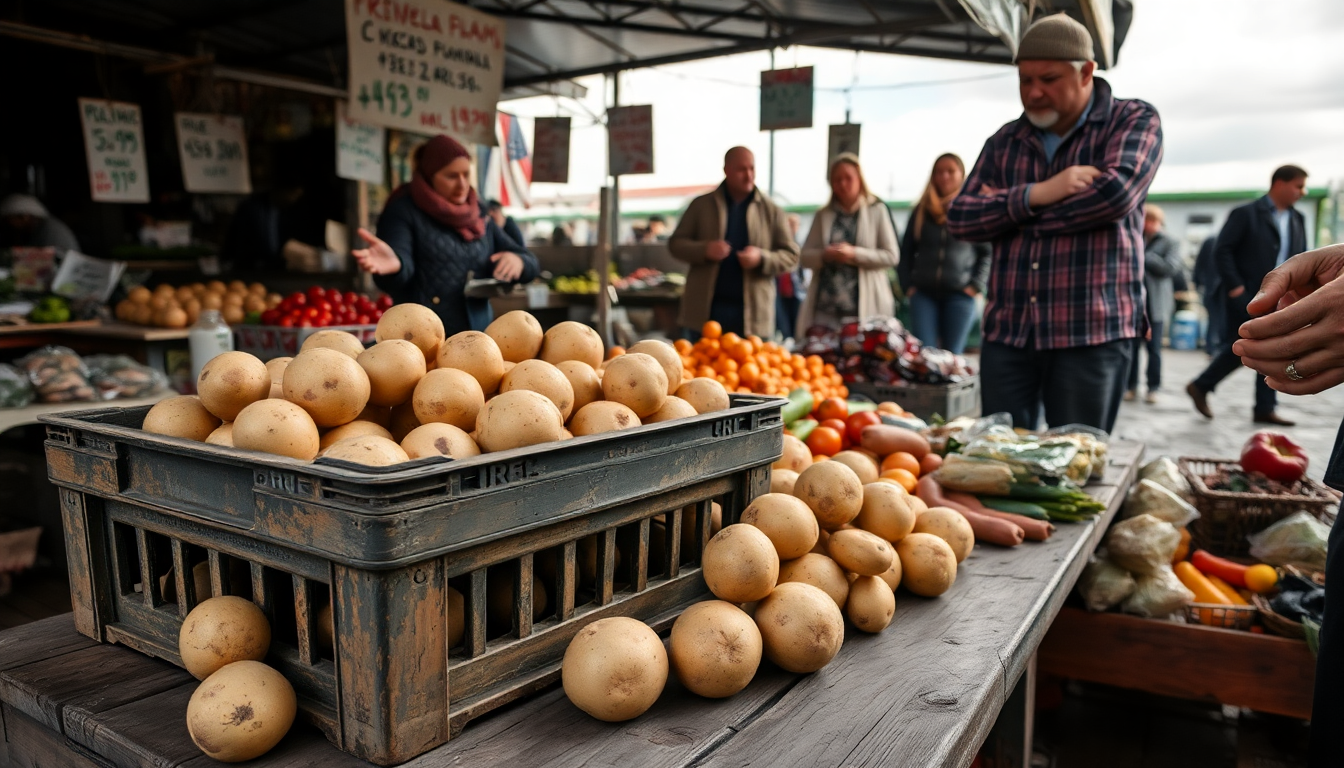Table of Contents
Have you ever wondered what happens when a government tries to control prices too strictly? In Belarus, under the leadership of Alexander Lukashenko, this question has become painfully relevant. The implementation of strict price controls has led to critical shortages of staple goods, especially potatoes. This situation raises important discussions about the effectiveness of such economic measures in a country where agricultural output is vital for both local consumption and international trade. Let’s take a closer look at the economic landscape shaped by these policies and their impact on everyday Belarusians.
The Economic Landscape of Belarus
Belarus is often dubbed a potato-loving nation, but it now finds itself in a precarious position due to the policies enacted by its long-standing leader. After his re-election in January 2024, Lukashenko introduced strict price controls aimed at stabilizing the economy and curbing inflation. However, these measures backfired, leading to a significant potato shortage by the spring of the same year. How could a country so reliant on agriculture find itself in such a bind?
Critics argue that these price controls have distorted the natural functioning of the market. Initially intended to keep staples affordable, they have instead made potato farming unprofitable for many. Farmers, facing dwindling returns, have been forced to seek better prices in neighboring Russia, which only worsened the local shortage. The numbers paint a stark picture: Belarus harvested only 3.1 million tons of potatoes in 2024, a dramatic drop from over 4 million tons the previous year. What does this mean for the average Belarusian?
This crisis echoes historical examples from the Soviet Union, where lack of motivation among farmers led to inefficiencies and reduced productivity. Lev Lvovskiy, an academic from the Belarusian BEROC economic think tank, points out that the absence of incentives has made it nearly impossible to maintain robust agricultural output. Isn’t it fascinating how history can repeat itself in unexpected ways?
The Complexity of Price Controls
The irony here is striking. Lukashenko, who once managed a collective farm during the twilight of Soviet communism, now faces the fallout of policies reminiscent of that era. The price controls implemented by his government have inadvertently made trading with Russia incredibly appealing, with potatoes fetching more than double the price across the border in March 2024. What a twist!
As a result, Belarus exported around 200,000 tons of potatoes to Russia, becoming the largest supplier of this staple to its neighbor. Lukashenko has even encouraged farmers to produce enough to satisfy both Belarusian and Russian markets, revealing a shift towards prioritizing exports over local needs. But at what cost to his own people?
In response to the crisis, the government has taken drastic measures, including a temporary ban on potato exports starting December 2024, all in an effort to bolster domestic supply. Interestingly, some farmers have resorted to labeling their produce as spoiled to bypass these restrictions and continue exporting to Russia. Talk about a creative workaround!
Government Response and Future Implications
The ongoing potato crisis hasn’t gone unnoticed by the Belarusian government. Officials are trying to manipulate the situation by increasing the maximum allowable prices for potatoes, hoping to incentivize farmers to plant and sell more domestically. Furthermore, to combat the self-imposed shortages, the state reversed bans on certain food imports from the European Union, including potatoes. Will these measures be enough to turn the tide?
Despite these efforts, the availability of quality potatoes in local stores has been inconsistent, leading to a situation where consumers face small, scarce, and sometimes subpar produce. Economic advisers and analysts have pointed out that the current strategies employed by Lukashenko’s administration reflect a troubling inefficiency that is placing significant strain on the economy. Is there a better way forward?
As the situation unfolds, the implications for Belarus’s agricultural sector and broader economy remain uncertain. The government’s approach, characterized by heightened control over retail operations and public complaints about pricing, suggests a reactive rather than proactive strategy. Analysts warn that this reliance on authoritarian measures may ultimately prove futile in addressing the underlying economic challenges facing the nation.
In conclusion, the Belarusian potato shortage serves as a critical case study on the pitfalls of stringent price controls and the complexities of managing an economy through heavy-handed government intervention. The consequences of such policies ripple far beyond the agricultural sector, affecting the entire economic landscape and highlighting the urgent need for a more balanced approach moving forward. How will Belarus navigate this challenging terrain?


